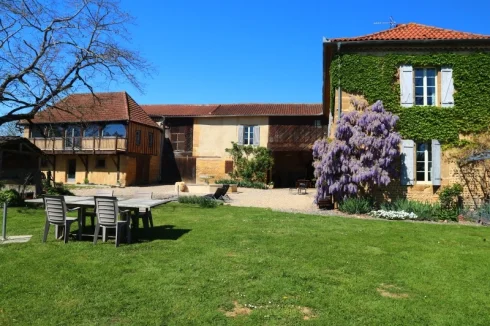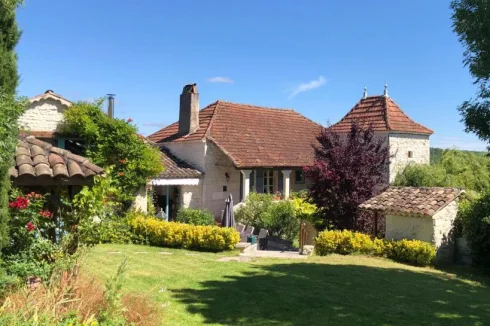How to Set Up a Company in France
Tuesday 05 April 2016
What are the formalities and fiscal implications of setting up and running a limited liability company in France? *
Starting a business in France does not require that you establish a limited company through which to undertake the activity.
The vast majority of expatriate small business owners manage quite satisfactorily as a sole trader, using the business tax status of micro-entrepreneur.
That status has been made more attractive by a law that grants automatic protection of the family home against business creditors.
Nevertheless, for a number of different reasons a limited company may be necessary or preferred due to:
- The turnover limitations of micro-entrepreneur status;
- A business with a high cost base (including VAT purchased goods) is likely to be better off having company status;
- A business that is likely to incur material losses in the first year or two might be better off run as a company, as losses cannot be reported through micro-entrepreneur status;
- If you are planning to run a business with one or more persons from outside of your family a company structure is likely to be indispensable.
- Company status is likely to offer a more professional and secure image, particularly important in cross-border trading.
In order to create a company and obtain admission to the national business register in France (Registre du Commerce et des Sociétés/Répertoire des Métiers) there are a number of formalities to accomplish.
Without a competency in the French language and existing business experience in France it would be imprudent to try and accomplish them on your own.
If you are proposing to engage an accountant to do your accounts they should be able to assist, although do some due diligence on their experience and competence in business creation and tax advice.
There is rarely the need to engage an avocat or notaire.
The following notes are not meant as a DIY kit, but to be of assistance in your discussions with advisors and officials.
Type of Company
The first thing you need to decide is the type of company you want to create.
There are different types of companies that can be used in France, but there is really only one that is likely to be of interest to most expatriates setting up a family business.
This is the Société à Responsibilité Limitée (SARL), which is called an Entreprise Unipersonelle à Responsibilité Limitée (EURL) where there is only one company director.
There is a slight variation in the nomenclature for those in one of the regulated professions libérales, but the structure generally used (SESARL) amounts to the same thing.
Only if you were seeking a public listing, additional equity investors, or a company for property management, might it be sensible to consider other types of company.
As far as the latter is concerned you can read more in our Guide to Société Civile Immobilière (SCI).
There are also different company types for agricultural activities.
Status of Spouse
If a spouse or civil partner works regularly in the business it is obligatory for them to choose a legal business 'statut '.
Their association with the company can take different forms - partner, employee or shareholder - but in each case, to some degree or another, they are obliged to pay social security contributions.
The level of the shareholding held by the spouse also has significant fiscal implications, so needs careful consideration. It normally makes sense for the shareholding to be unequal.
If the spouse/civil partner does not participate in the business they obtain no pension rights, although they are covered for health as a family member.
You can read more about the options for a spouse at Status of Spouse in Family Business.
Governance
As part of, or prior to, the process of business registration it will be necessary to prepare the articles of association, rules that set out how the company is organised and how it will operate.
In French the articles are known as the 'statuts'.
They will state the name of the company, purpose, head office, name of the bank, the decision-making process, the capital structure and the shareholders, etc.
A great deal of time and money can be spent in the preparation of the articles, but in the case if a family business the cheapest and quickest solution is to adapt an existing template readily available on-line.
Perhaps the most suitable are those provided via the French government on their business start-up website, where you can find model articles for a SARL.
The use of these templates does require that you fill in the blanks, so it is a process that still needs an understanding of the French language and some understanding of French law. So due care and consideration are needed.
You need to ensure that the name is not already registered, which you can do by checking with Infogreffe, the commercial court.
If you seek intellectual copyright (including brand name) then you need to register it with the Institut national de la propriété industrielle (INPI).
There is no minimum capital requirement for a company, which can be started with €1. However, you need to consider the funding requirements of the business and the impact of the capital structure on clients and your bank.
In addition, there is an income tax break equivalent to 18% of the capital subscribed to a company, so for this reason alone you may want to start the company with a reasonable level of capital.
If the company is not to be based at your home you will need to provide evidence of your right of occupation, such as letting agreement. If you need to sign a letting agreement, but you have yet to start your business, you can get preliminary business registration in order to allow the agreement to be completed. A second later registration process is then necessary.
You will need to publish a legal notice of creation in a newspaper, the formalities of which can be easily and cheaply accomplished on-line in the Journal Annonce Legale.
You will need to open a bank account in the name of the company and deposit initial funds. The sum deposited will be blocked until formal registration of the company has been completed.
Business Registration Centre
In theory registration can be accomplished on-line, but it is not a practical proposition.
A better approach is to make a personal visit to your business registration centre.
The business centres may be able to advise you on financial assistance that may be available for new business creation, such as grants, loans and tax relief.
Some make a small charge for the registration process, but it is not significant. Ideally, ring and make an appointment before you visit.
However, do not necessarily expect to obtain an English language speaking service. You may also want personal tax advice, which they are unlikely to be able or willing to provide.
The register and the registration centre (Centres de Formalités des Entreprises - CFE) depends on the nature of your activity, as follows:
| Activity | Register | Centre |
| Artisan | Répertoire des Métiers (RM) | Chambre de Métiers et de l’Artisanat (CMA) |
| Commercial Sales | Registre du Commerce et des Sociétés (RCS) | Chambre du Commerce et de l'Industrie (CCI) |
| Professions Libérales | Registre du Commerce et des Sociétés (RCS) | CCI/URSSAF/Greffe* |
| Sales Agent | Registre Spécial des Agents Commerciaux (RSAC) | Tribunal de Commerce (Greffe) |
| Agriculture | Registre du Commerce et des Sociétés (RCS) | Chambre d'Agriculture |
*Those in one of the professions libérales need to take advice on the appropriate CFE due to the different regulations that apply to their activities. URSSAF would normally only deal with your registration if you were to be a sole trader.
Some activities also require registration on both the répertoire des métiers and registre du commerce et des sociétés, although registration can be carried out at a single centre. This is particularly relevant to those in one of the building professions.
As part of the registration process you will need to complete a variety of forms and provide a range of supporting documentation.
The main forms to complete are:
- Declaration of company creation;
- Affiliation to the social security system;
- Declaration of relevant experience/qualifications;
- Declaration that you are not criminally barred from exercising the activity;
- Declaration on the domain name of the website that will be used.
You can find examples of the paperwork at Formulaires & Modèles.
You will also need to provide a range of documents, such as passport, marriage certificate, birth certificate, proof of address, and visa if applicable.
Many business activities in France are regulated and require that you have a relevant qualification or experience, or that you obtain a licence to undertake the activity.
In the vast majority of cases the hurdles to obtain access are not difficult, or they are as might be ordinarily expected, eg, appropriate professional qualifications.
There are also European regulations that govern the recognition of qualifications between Member States.
Costs
The costs of the business creation and registration process are going to depend largely on the nature and amount of professional support you engage.
For the basic costs of registration you need to budget a few hundred euros, but for a professional advisor (avocat, accountant, notaire) then you should budget another €1,000 to €2,000.
If you would like English language speaking professional assistance with the creation of a company then contact us at [email protected].
Taxation
As part of the administrative formalities you will need to state the proposed tax and social security status of the company. There are different approaches that can be taken.
Broadly speaking, in relation to taxation you can choose whether to be taxed:
- Entirely through the personal income tax system (so no distinction between profits of business and income of owner); or
- Pay company tax on profits (with separate personal remuneration).
If you opt for company taxation your remuneration is a deductible expense from company profits.
In terms of social security contributions the basis on which you are liable can differ:
- Within an EURL you will pay social security contributions as a self-employed person under the régime des non salariés (TNS).
- Within a SARL, if you are the majority shareholder then you pay as a self-employed person under the régime des non salariés (TNS); if you are a minority or equal shareholder you pay as a salaried employee.
Whether EURL or SARL you can also choose to have some of your remuneration paid as dividends, though in recent years any fiscal advantages that this approach once provided have been eroded. In particular, if the dividend amounts to more than 10% of the share capital full social security contributions are payable on it.
It is beyond the scope of this article to consider these options in any detail, and without an individualised appraisal there is no clear answer to any of them.
In general, however, it can be said that in considering whether to adopt personal income tax or company taxation for the business you need to examine, inter alia, the marginal tax you would pay on your total household income if taxed on a personal basis, against the rate you would pay if the business was taxed separately through company taxation.
In addition, adopting personal taxation means that losses incurred in the business can be set against other household income, whilst with company taxation losses can only be set against future profits.
In all cases the social security obligations will not be insubstantial, but being salaried does mean that the social security contributions are highest, as they are paid by both the employee and the company.
*Updated Oct 2019
Related Reading:
Thank you for showing an interest in our News section.
Our News section is no longer being published although our catalogue of articles remains in place.
If you found our News useful, please have a look at France Insider, our subscription based News service with in-depth analysis, or our authoritative Guides to France.
If you require advice and assistance with the purchase of French property and moving to France, then take a look at the France Insider Property Clinic.





